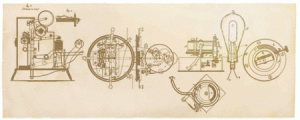We all know what “Knowledge” is, but to ensure we are on the same page, it is defined by the Oxford English Dictionary as
(i) expertise, and skills acquired by a person through experience or education; the theoretical or practical understanding of a subject;
(ii) what is known in a particular field or in total; facts and information; or
(iii) be absolutely certain or sure about something.
Of course, we can also sum it all up using Plato’s formulation of knowledge as “justified true belief.” So what is “Meta-Knowledge”? Well, think of it as knowledge about knowledge. To clarify, let me run an example by you, Mr Smith lives at No1 High Street – thats ‘data’. I can also step up a level and define the attributes of that data, as Name and Address – thats called “meta-data”, or to put it more simply, its data that describes the data. So Meta-Knowledge is simply knowledge that is knowledge about knowledge.
So why am I babbling on about all this? Well, because the University of Chicago has issued a press-release on the topic that starts out like this …
